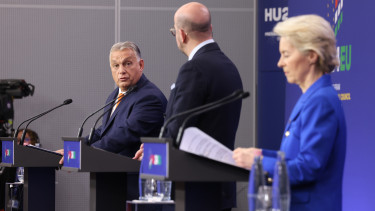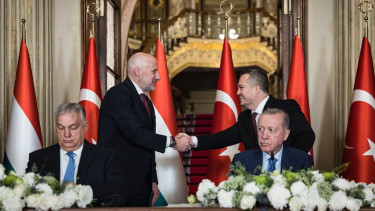Price of petrol to be raised further in Hungary - What could the gov't do about it?

Mol is set to raise the wholesale gross list price of gasoline by HUF 6 per litre on Wednesday, but it will keep the price of diesel unchanged. Accordingly, we should find the following (average) fuel prices at the pumps two days from now.
- 95-octane petrol: HUF 638 / litre
- Diesel: HUF 648 / litre
The price of petrol reached its highest this year already last week,
and with wednesday's hike it will be 11.9% (huf 68 per litre) higher than at the end of last year.
The price of diesel rose 9.3% (HUF 55 per litre) this year.


What intervention would be possible?
Last week, the Minister of National Economy has signalled to fuel market players again that domestic prices must be in the middle of the regional rankings, because if this is not achieved, the government will intervene.
Five days ago, both petrol and diesel prices were the third-highest in the region.


Among other things, the well-known price freeze could be one of the government's tools to control petrol prices, but the sector is cautioning against such a measure, citing its market-disruptive effect.
Of course, the price freeze is not the only solution to reduce domestic fuel prices, another possible way to go (which we may have already seen an example of last year) is that Mol could narrow its already high wholesale margin on the market, thus "decoupling" the wholesale price from the actual market price development, thus pulling Hungarian fuel prices closer to the average price in the region.
In addition, there may be scope for the government to reduce the tax burden, as the two-stage increase in excise tax on fuel (HUF 41 per litre in total) implemented in January was set at a level to meet the EU rule up to EUR/HUF 420, so there is some room for manoeuvre in this respect (EUR/HUF is currently at 397.7).

Interestingly enough, the government asked for a derogation (temporary exemption) on the tax hike from the EU at the end of 2022. The relevant rule is that the exchange rate of October of the previous year must always be taken into account when determining the tax level. On the first working day of October 2022, the exchange rate of the euro was 422 forints, so if the tax increase had already taken place from 2023, this high tax level would have been logical, but the increase in 2024 would have to be determined on the basis of the exchange rate of October this year, according to the relevant EU regulation. EUR/HUF on 2 October stood at 388, rather far from 422 or even 420.

It's also interesting to see how Hungary's VAT rate on fuel compare with the tax in other EU member states.

Címlapkép forrása: Shutterstock








